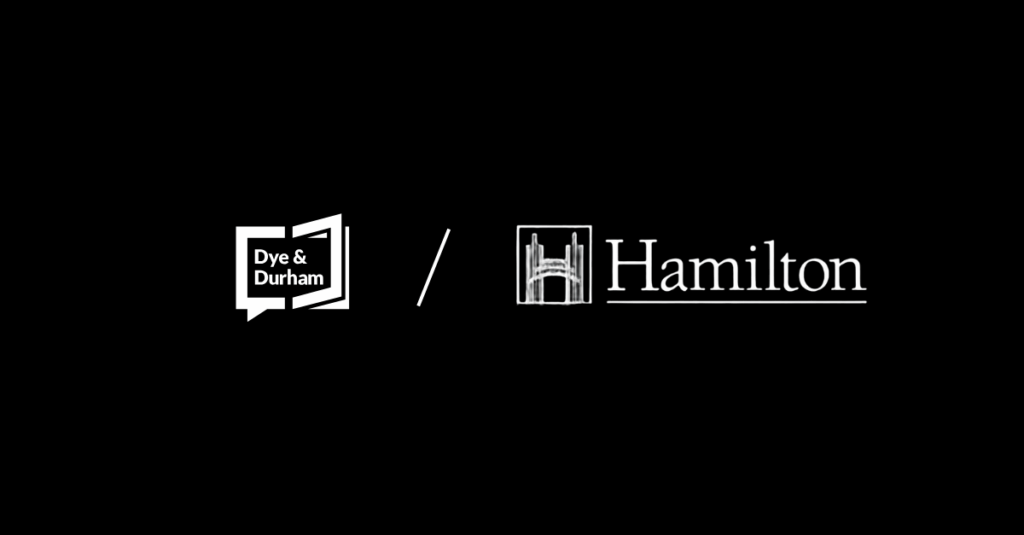Small firms (with fewer than 10 lawyers) and solo practitioners are the entrepreneurial trailblazers driving the future of Canada’s legal industry. While balancing a growing client roster and ensuring cost-effective practice management, these firms embrace technological innovation and digital transformation in their day-to-day operations while managing the transition to paperless and virtual offices.
According to a recent Angus Reid Forum survey conducted by Dye & Durham, 80% of Canadian legal professionals are prepared to adopt new cloud-based software solutions. But with no shortage of office management software and other legal tech tools, finding the right mix of cost-effective solutions to help scale a new practice is no easy task.
With leaner budgets, fewer resources, and less staff than larger, more established firms, small and solo practitioners prefer the benefits of a one-stop shop for solutions that provide everything needed to complete transactions, connect all parties and efficiently organize workflows. Our national survey also revealed 50% of legal professionals prefer purchasing from a single provider while only 14% of legal professionals said they prefer multiple cloud-based solutions providers.
But the legal industry is often viewed as a laggard on digital transformation, and some larger firms have ingrained preferences for different software tools and rely on multiple vendors to provide specialized digital solutions for processes such as docketing, accounting and management. For small and solo practitioners, particularly in real estate, the two biggest challenges tend to be the cost of adopting new applications and finding highly qualified staff to operate them.
“For a real estate practice to be successful, it needs scale, high deal volume and efficiency,” says Tony Arabia, Senior Account Executive at Dye & Durham. “When small and solo practices are starting out, they will need to pull together different software platforms, which become quite costly especially when combined with the expenses that come with leasing a new commercial space and hiring and retaining staff. If firms experience software downtime requiring technical support or need help customizing documents and they’re not able to get help quickly, it’s going to result in a massive disruption to workflow and possibly jeopardize time sensitive deals.”
While there is significant upfront cost and heavy lifting associated with adopting a new software platform, particularly with the transfer of a practice’s historical data, the benefits of integration and customer relationship with a single provider are quickly realized at scale. Lawyers who launch their own practice after leaving a larger firm benefit from being “early adopters” of a single integrated platform as they migrate from more established platforms, such as PCLaw and Time Matters, that their former partners might be more accustomed to using.
Unity—Dye & Durham’s leading real estate practice management and conveyancing platform—provides practitioners of all sizes with the tools to manage matters and opportunities, document automation, client relationships, calendaring and tasks, and productivity from a single application. Arabia estimates that customers save an average of thirty minutes on closing a deal with Unity.
With more law clerks becoming increasingly familiar and shortening their learning curve with Unity over time, most practitioners will find Dye & Durham’s platform is fast becoming the industry standard in Canada.
Even with its many features and product integrations, Unity is only one of Dye & Durham’s 18+ Canadian offerings across Legal Practice Management, Corporate, Real Estate and Payments & Lending areas. The result of our growing software suite is a one-stop platform providing practices of any size with bundled solutions at a single price and point of contact, and an advantage over other firms who use multiple providers to address different—and increasingly siloed—practice management areas.
“There’s a significant benefit to working with a single solution provider like Dye & Durham that will provide small and solo practitioners with all of the programs they’ll need to manage and scale their business,” says Arabia. “Our customers find more flexibility while structuring deals that will save them a significant amount of time and money as they do more business with us.”
For example, by bundling multiple solutions, a small Canadian real estate firm can optimize practice management and conveyancing workflows through Unity, automate records and filing processes and accessing public records data with eCore, and manage payments using Dye & Durham’s platform.
“Legal practitioners of all sizes want ease of purchase, ease of use and ease of support, all in one place,” says Dye & Durham’s Canada President Dennis Barnhart. “We’ve seen this reflected in the enthusiastic response to our real estate software bundles in Canada, as well as a number of our other products globally.”
Whether you are a large firm with more than 700 lawyers or a solo practitioner looking to make your first hire, the process of adopting a new software platform isn’t static – it requires weighing your options and setting up demos with a provider to find the right fit for your practice.
To set up a demo for any of our products, contact your Dye & Durham relationship manager or get in touch with us online.
Go to Media














